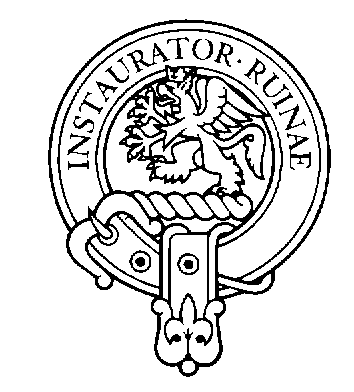The Remarkable Journey of Samuel Douglas Forsyth: From Virginia to Venezuela
/You can read the full article written by Jason Richardson in the July 2023 issue of The Griffin
Samuel Douglas Forsyth, born around 1780 in Virginia, led a life full of adventure, transformation, and unexpected twists. Little is known about his early years, but records first surface in 1807 when he served as a Surgeon’s Mate to U.S. General James Wilkinson. However, Forsyth’s time in the military was short-lived, as he resigned from his post in 1808. Afterward, his life appears to have quieted for a time—until he reemerged in 1811, practicing medicine in Rapides, Louisiana. By then, Forsyth was already plotting his next move: Nacogdoches, Texas.
But this would prove to be just a stepping stone. Forsyth’s true journey began when he ventured to South America, where the winds of revolution were sweeping the continent. His role as a supporter of South American independence came into focus as he joined the Gutierrez-Magee Expedition of 1812–1813—an early filibustering effort against Spanish Texas. This was a bold move, as Forsyth found himself involved in the rising tensions between Mexico and Spain, alongside U.S. volunteers led by Augustus Magee and Mexican Republicans under Bernardo Gutierrez de Lara.
From Mexico to Venezuela: A Revolution’s Call
Forsyth’s commitment to independence didn't stop in Mexico. In 1813, he joined General José Alvarez de Toledo’s rebel army and eventually found his way to Venezuela. In 1816, during the height of the independence struggle, Forsyth was appointed as both a colonel and physician in Simon Bolívar’s army. Bolívar himself took note of Forsyth’s contributions, writing in a letter dated February 13, 1816:
"The bearer of this letter is Dr. Forsyth who I beg leave to recommend to your notice and protection."
This personal recommendation from Bolívar hints at Forsyth’s growing importance in the Venezuelan revolution. As a key figure in the struggle for freedom, Forsyth’s medical expertise, coupled with his military service, made him indispensable to Bolívar's forces.
Building a Legacy in Venezuela
After the revolution, Forsyth settled in Caracas, where his influence continued to expand. In addition to acquiring mercantile stores previously owned by Royalists, he became a key intermediary between the U.S. and the Venezuelan government, negotiating arms deals for Bolívar’s army. Forsyth also founded a real estate company—Lemmon, Forsyth, and Beste—and served as an interpreter for visiting U.S. officials, further cementing his status as a prominent figure in post-revolutionary Venezuela.
In 1819, Forsyth acted as an interpreter for U.S. Commodore Oliver Hazard Perry during his visit to Venezuela. Perry, who was negotiating an anti-piracy treaty with Bolívar’s government, stayed at Forsyth’s home while in Angostura. Unfortunately, during the return voyage to the U.S., tragedy struck: Perry succumbed to yellow fever, and Forsyth found himself treating the crew members, despite contracting the illness himself. Perry’s death made headlines, and Forsyth’s pivotal role in the situation was noted in the Evening Post of New York.
Diplomacy and the U.S. Mission
Forsyth’s diplomatic skills continued to serve him well. In 1820, he was dispatched with Manuel Torres to the U.S. to secure arms for Bolívar’s forces. In a meeting with President James Monroe and Secretary of State John Quincy Adams, Forsyth and Torres negotiated successfully, avoiding the intimidation tactics often used by their contemporaries. The diplomatic mission further solidified Forsyth’s standing, and in 1824, he hosted a dinner in Caracas for Bolívar, during which a portrait of George Washington was prominently displayed—likely one Forsyth acquired during his time in the U.S. or received as a gift from Commodore Perry.
The Final Years and Legacy
In the years that followed, Forsyth’s life in Venezuela remained one of growing influence and family. In 1826, he purchased a historic property, La Casa de Solorzano, which would later become the Museo de Arte Colonial Quinta de Anauco, a museum dedicated to Venezuela’s colonial history. Forsyth’s personal and professional legacy continued to evolve until his death in 1841.
Forsyth’s final resting place is at the British Cemetery in Caracas, where he is remembered not just as a U.S. citizen, but as a true participant in Venezuela’s revolutionary history. His life—from Virginia to Louisiana, Mexico, and ultimately Venezuela—offers a powerful narrative of dedication to a cause greater than oneself, spanning continents and histories.
A Lasting Legacy: Samuel Douglas Forsyth’s journey is a testament to the global spirit of revolution and the connections that shaped the course of history. His contributions in both the medical and diplomatic spheres during Venezuela’s fight for independence are still remembered today, and his story reminds us of the many unsung figures who played pivotal roles in shaping the world we know.

